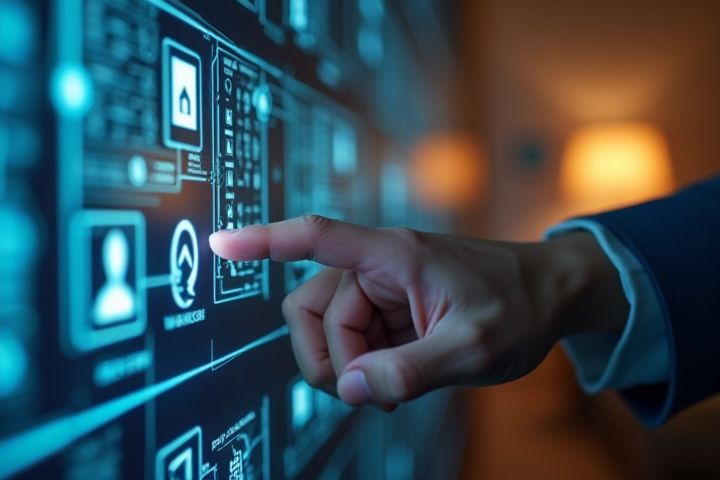
Incorporating smart home technology enhances your living experience by providing convenience, security, and energy efficiency. Devices such as smart thermostats enable you to control heating and cooling systems remotely, optimizing energy usage and reducing utility bills. Home security systems with smart cameras and motion sensors allow you to monitor your property in real-time from anywhere, ensuring peace of mind. Furthermore, smart lighting systems can be customized to adapt to your lifestyle, providing both ambience and practicality. Overall, integrating smart technology into your house not only elevates comfort but also contributes to sustainable living.
Should A House Have Smart Home Technology
Increased convenience
Smart home technology enhances your living experience by providing automation for daily tasks, such as adjusting lighting or controlling temperature remotely. Devices like smart thermostats learn your preferences, optimizing energy usage and reducing utility costs. With voice-activated assistants, managing household routines becomes effortless, allowing you to control appliances with simple commands. This increased convenience not only saves time but also improves overall comfort, making your home more enjoyable and efficient.
Enhanced security
Incorporating smart home technology can significantly enhance your home's security through features like smart locks, security cameras, and motion detectors. Smart locks allow you to remotely control access to your home, providing real-time alerts and monitoring of entry points. High-definition security cameras with night vision enable consistent surveillance, while motion sensors can notify you of any unusual activity, ensuring rapid response. By integrating these technologies, you create a safer living environment and have more control over your property.
Energy efficiency
Smart home technology significantly enhances energy efficiency in residential properties, potentially reducing energy bills by up to 30%. Intelligent systems, like smart thermostats, can learn your schedule and adjust heating and cooling accordingly, leading to substantial energy savings. You can also integrate energy-efficient LED lighting with smart home devices, allowing for automation based on occupancy and natural light levels. Implementing these technologies not only contributes to environmental sustainability but can also increase your home's value in the real estate market.
Remote control capability
A house equipped with smart home technology enhances your living experience through remote control capabilities, allowing you to manage appliances, lighting, and security systems from anywhere. Compatible devices, such as smart thermostats and locks, can be conveniently accessed via mobile apps, providing peace of mind and energy efficiency. Voice-activated assistants enable you to issue commands effortlessly, creating a seamless integration of technology into daily routines. This innovation not only improves comfort but also boosts energy savings, making your home more efficient and tailored to your lifestyle.
Integration with existing systems
Integrating smart home technology with existing systems enhances the overall functionality and convenience of your home. This seamless connectivity allows devices such as lighting, heating, security, and entertainment systems to communicate effectively, creating a cohesive environment. For optimal performance, ensure compatibility with popular standards like Z-Wave or Zigbee when selecting smart devices. With proper integration, you can control multiple systems through a single smart hub or app, streamlining your daily activities and improving energy efficiency.
Potential cost savings
Integrating smart home technology can lead to significant cost savings over time. Energy-efficient systems, such as smart thermostats, can reduce heating and cooling expenses by up to 20%, resulting in annual savings of approximately $180 for the average household. Furthermore, smart lighting can lower electricity costs by allowing you to control usage remotely, potentially reducing utility bills by as much as 30%. By investing in these technologies, you not only enhance your home's convenience but also contribute to long-term financial benefits.
Improved accessibility
Integrating smart home technology significantly enhances accessibility for individuals with disabilities, allowing for tailored environments that suit diverse needs. Voice-activated assistants, such as Amazon Alexa or Google Assistant, enable control of lighting, temperature, and security systems without the need for physical interaction. Smart locks facilitate easy access for those with mobility challenges, eliminating the struggle of traditional key use. Incorporating these technologies into your home not only promotes independence but also creates a more inclusive living space.
Customization options
Smart home technology offers extensive customization options that enhance both functionality and convenience. You can tailor systems such as smart lighting, thermostats, and security features to fit your specific lifestyle and preferences. For instance, programmable schedules allow you to control heating and lighting based on your daily routine, potentially saving up to 30% on energy costs. With over 70% of homeowners expressing interest in personalized smart solutions, investing in customizable technologies can significantly elevate your living experience.
Data privacy considerations
Incorporating smart home technology enhances convenience but raises significant data privacy concerns. Devices like smart thermostats, security cameras, and voice assistants collect personal data, which can be vulnerable to breaches or unauthorized access. You should prioritize products that offer robust encryption, clear privacy policies, and user control over data sharing. When selecting smart home systems, ensure they comply with regulations such as GDPR or CCPA, thereby safeguarding your personal information.
Future-proofing your home
Integrating smart home technology can significantly enhance your home's future-proofing capabilities, ensuring it remains adaptable to evolving demands and trends. With the global smart home market projected to reach $174 billion by 2025, investing now allows you to leverage advancements such as voice-activated systems, energy-efficient devices, and home automation. Features like remote monitoring and control not only improve energy management, potentially saving you up to 30% on utility bills, but also increase the resale value of your property. By prioritizing smart technology, you can create a home that is not only more efficient but also more appealing to future buyers.
